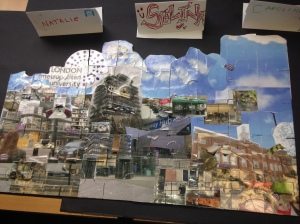Today’s lecture was all about Empathy and that active listening is a main tool in this. We spoke about the many ways we could apply this to our practice, as this is essential as a peer mentor.
What is empathy?
Carl Rogers describes this term to be ‘the internal frame of reference of another with accuracy and with the emotional components and meanings which pertain thereto as if one were the person, but without ever losing the “as if” conditions’. (1959 cited in Rogers, 1995, p.140).
Rogers perceives ‘Empathy’ to be;
– Not making judgement
– Communicating your sensing of the persons world
– Being guided by the person, “can I do this?… Is this ok?”
– Never assume your way is the way for others
– Building connections
Above is a short video we watched in class that clarified the differentiation between sympathy and empathy. Sometimes we may feel that to sympathise with someone is enough. But as a practising mentor, this video proved that being empathic towards someone is more beneficial. It allows you to be able to place yourself in the other persons shoes and feel what it is they are going through – through active listening. An example of when I applied empathy to my practice as a mentor, was when I was approached by one of the mentee’s who expressed their worries and concerns about the work and reading load. Instead of jumping in with the many suggestions I thought would benefit the mentee, I applied active listening as a tool. Whilst expressing their thoughts and feelings I was able to show my relatable compassion as a second year, then prompt the mentee to think about the ways they could approach the situation. This worked really well as I learnt from this moment, sometimes the best advice you can receive is from yourself, of course with the help, prompt and guidance from others.
With this in mind, it is also important to remember the boundaries of doing so. Keeping that glass wall between you and the mentee, enabling you to feel what they are going through to be able to give great advice – or not – without the situation becoming personal to you, bringing in your own personal feelings.
We moved onto our weekly class activity, role play! We were given different scenarios which may occur in mentoring. We then had to reenact them after thinking critically about the different responses we could give, whilst keeping the topic of empathy still in mind. Through our role play scenarios, we were able to pick up on some great ideas. Sandra reminded us that as mentors we may not always have the answer and that is fine. Sometimes certain situations work best when no advice or answer is given. This gives the mentee time to be able to think for themselves, creating solutions they may not have had time to think of before.

After this, we slipped into the mentees lecture to catch the end of their lesson so we could get an idea of where they were at… Memories. This week felt a lot more relaxed. I noticed more of our mentees were getting involved with everyone, asking questions and having general chit chat. I worked closely with a small group of mentees, going over the online resources and how to access them, which they found quite helpful. We were also able to help with some of the content which might be useful to apply to their blogs, what to think about, reflect on and how you might plan ahead for the next lecture.
Towards the end of the session, one of the mentors said to me “someone must be handing out my blog name because I have loads of requests!”… Guilty! Haha. I thought it was a good idea for the mentees to have a look at our blogs, just to see how we make it our own and that it doesn’t actually have to be written in the best way possible. Add your own touch to it, make your blog personal to you and add your own voice to it. It’s also a good idea to have a browse at the previous blogs from last year to get an idea of what’s to come. Overall, a good and productive session!













